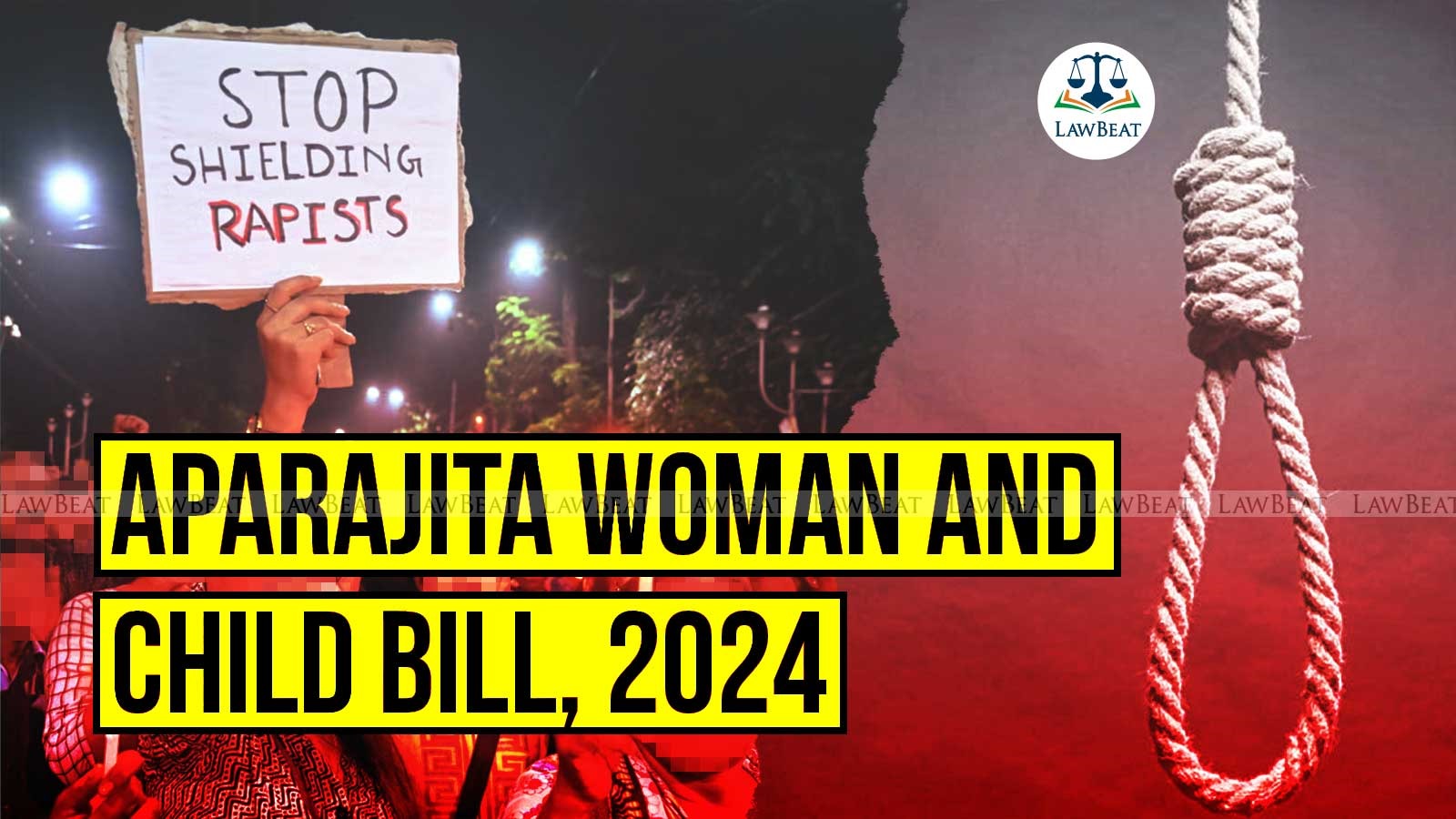Is West Bengal's Aparajita Bill Mandating Death Penalty for Rape a Knee Jerk Reaction? : The Bar Answers

The bill mandates death penalty when rape leads to the victim's death or a permanent vegetative state and amends the Bharatiya Nyaya Sanhita with harsher penalties for rape and related crimes
The West Bengal Assembly on Tuesday unanimously passed the "Aparajita Woman and Child (West Bengal Criminal Laws Amendment) Bill, 2024, an Anti Rape legislation aimed at strengthening the state's laws against rape and sexual offences. The bill was introduced in the wake of the tragic rape and murder of a trainee doctor at RG Kar Medical Centre and Hospital last month by the Mamata Banerjee-led government to ensure stricter penalties and swifter justice for such offences.
The passage of this bill follows a special two-day Assembly session convened by the state government to address growing public outrage and demands for stronger legal protections for women and children. However, the bill requires the assent of President Draupadi Murmu to become enforceable. Given that criminal law falls under the Concurrent List, the state's law will take precedence over central laws, provided the President approves it.
Senior Advocate Vijay Hansaria expressed apprehension about the bill surviving the constitutional test. “It is not going to work on the ground,” he said, highlighting the ambiguity with regards the consequences if the investigation is not concluded within the stipulated time of 21 days and after the given extension and no provision to address the lack of accountability on part of the police in the state. “Unless you have mechanism to enforce a law…its just a face saving sort of a thing, a knee jerk reaction.”
Senior Advocate Vivek Sood called the legislation a “Gross reaction” underlining cases where innocent men are falsely implicated and even convicted. “There is scope of error in finding real culprit as guilty,” he told Lawbeat. Mr. Sood also critiqued the provision of mandatory death penalty in contrast with nations which have either abolished the practice or are on the move to do so. With regards the investigation timelines provided under the Aparajita Bill, Mr. Sood advocated for a speedy investigation but critiqued the provision under the bill for tampering the Bharatiya Nagarik Suraksha Sanhita, 2023 which according to him is very “reasonably worded on this account”. He further underscored that “judiciary is well equipped” to deal with such cases as courts have devised guidelines to prevent the release of convicts prematurely in heinous offences such as rape and murder.
Advocate Charu Mathur (Supreme Court AOR) also concurred with Mr. Hansaria and Mr. Sood and remarked “This to my mind is a knee jerk reaction. Death is irreversible. We need to make our investigations foolproof. The society has to evolve, for heinous offences death penalty must exist, however, what is “rarest of rare" for one judge might not be for other.”
Notably, some key features of the bill include:
Death Penalty: The bill permits the death penalty in instances where rape results in the victim's death or a permanent vegetative state.
Amendments to BNS 2023: The bill enacts significant amendments to the Bharatiya Nyaya Sanhita 2023, emphasising harsher penalties for rape, gang rape, and related crimes.
Life Imprisonment: It introduces life imprisonment without the possibility of parole for those convicted of rape or gang rape.
Repeat Offenders: Repeat offenders face life imprisonment, or in extreme cases, the death penalty, along with potential financial penalties.
Omission of Certain Sections: The bill removes specific provisions related to the age of offenders, prioritising the gravity of the crime over the age of the perpetrator.
Speedy Investigations: It mandates that rape investigations be concluded within 21 days, with a possible 15-day extension subject to senior police officer approval.
Special Task Force: A district-level "Aparajita Task Force," led by a Deputy Superintendent of Police, will be established to investigate rape and sexual offences.
Specialised and Fast-Track Courts: The bill proposes the establishment of 52 special courts dedicated to handling rape and sexual offence cases against women and children.
Privacy Protections: It introduces penalties for the unauthorised publication of court proceedings related to rape cases, with violators facing 3 to 5 years of imprisonment and fines.
